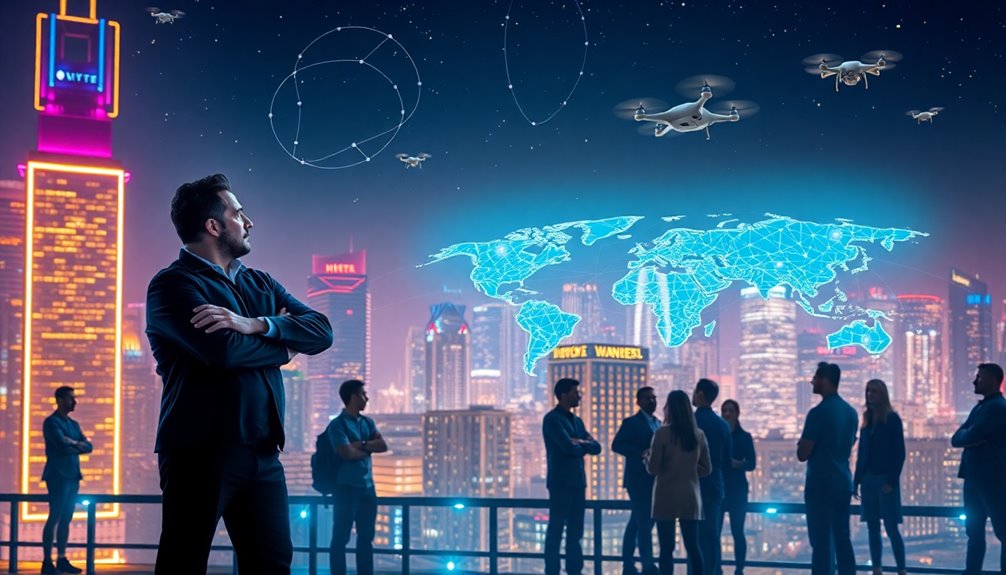As you consider the evolving landscape of governance, think about how network states could challenge traditional nation-states. These decentralized communities, powered by blockchain and cryptocurrencies, may redefine economic and social structures. Imagine the implications for transparency and collaboration in this new world. What would it mean for diplomacy and recognition on a global scale? The future might not be as straightforward as it seems.

As technology evolves, you might find yourself intrigued by the concept of network states—highly aligned online communities poised to reshape governance and societal structures. These communities leverage blockchain technology to create a system that's transparent and immutable, allowing for collective action that can lead to diplomatic recognition from existing states.
Imagine being part of a society that starts as a small startup focused on a single issue, gradually evolving into a network union and eventually forming a network archipelago that owns or leases physical assets globally. Network state technologies facilitate these transitions by utilizing decentralized autonomous organizations (DAOs) for governance.
In this new paradigm, Web3 plays a crucial role. Its decentralized nature shifts power away from centralized entities and empowers community-run networks. This evolution contrasts sharply with the centralized model of Web2, where your data is often controlled by corporations.
In a network state, you regain control over your data, which is essential for fostering trust and collaboration within the community. Cryptocurrencies serve as the lifeblood, enabling transactions and economic activities that facilitate the growth and sustainability of these states.
Picture yourself navigating through the various stages of a network state's development. You might start as a member of a startup society, aligning with others on a shared goal. As the community matures into a network union, you'll witness the establishment of leadership structures, the introduction of a native cryptocurrency, and the deployment of collaboration tools.
Eventually, as the network state evolves into a network archipelago, it will seek to acquire physical territory, interacting with the real world in ways that traditional online communities can't.
However, the journey to achieving diplomatic recognition as a sovereign state isn't without challenges. You'll notice significant lobbying efforts required to gain acknowledgment from existing nation-states, which may also adopt similar technologies.
The potential impact is profound; network states could rival traditional governance structures, transforming how society functions and interacts.
While the advantages are compelling, criticisms exist. Some argue for network societies instead, raising concerns about the atomization of communities. Yet, the advancements in blockchain and decentralized technologies could pave the way for new forms of information sharing and collective rights management.
As you explore the potential of network states, you may find yourself at the forefront of a movement that challenges the very foundations of governance and societal organization.









